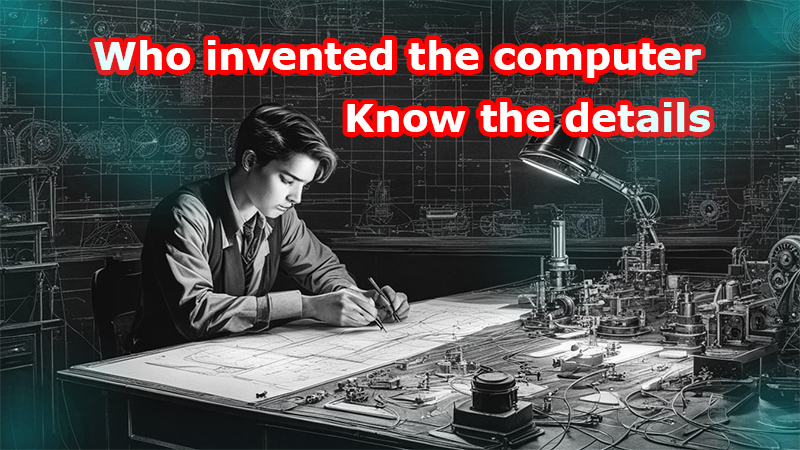Who invented the computer? Know the details
The invention of the computer cannot be attributed to a single individual; rather, it is the result of contributions from many pioneers over time. Here are some key figures and their contributions:
Early Concepts and Mechanical Computers:
- Charles Babbage: Often considered the “father of the computer,” Babbage designed the Difference Engine (1820s) and the more advanced Analytical Engine (1830s). Though neither was completed during his lifetime, these designs laid the groundwork for future computers with concepts such as the use of punched cards and a separate arithmetic unit.
- Ada Lovelace: Recognized as the first computer programmer, Lovelace wrote algorithms for Babbage’s Analytical Engine, and her notes include what is considered the first algorithm intended to be carried out by a machine. (Who invented the computer)
Electromechanical and Early Electronic Computers:
- Konrad Zuse: A German engineer, Zuse created the Z3 in 1941, the first electromechanical, programmable computer. It used binary arithmetic and could be considered a significant step towards modern computing.
- Alan Turing: An English mathematician and logician, Turing conceptualized the Turing Machine in 1936, a theoretical device that could simulate any computer algorithm. Turing’s work laid the foundation for theoretical computer science. During World War II, Turing also played a key role in breaking the Enigma code. (Who invented the computer)
Modern Electronic Computers:
- John Atanasoff and Clifford Berry: Developed the Atanasoff-Berry Computer (ABC) in the late 1930s and early 1940s at Iowa State College. It was the first electronic digital computer, although it was not programmable.
- John Presper Eckert and John Mauchly: Designed and built the Electronic Numerical Integrator and Computer (ENIAC) during World War II. Completed in 1945, ENIAC was the first general-purpose, fully electronic digital computer. It was programmable but required rewiring to change its programming.
- John von Neumann: Proposed the von Neumann architecture in 1945, which describes a computer with a single storage structure to hold both instructions and data. This architecture became the basis for most modern computers. (Who invented the computer)
Commercial and Personal Computers:
- IBM (International Business Machines): Played a significant role in the development of commercial computers in the 1950s and 1960s. The IBM 701 (1952) and later models were influential in business and scientific computing.
- Steve Jobs and Steve Wozniak: Co-founders of Apple Computer, they created the Apple I (1976) and Apple II (1977), which were among the first highly successful personal computers.
- Bill Gates and Paul Allen: Co-founders of Microsoft, they developed software (notably the MS-DOS operating system) that became widely used on personal computers, helping to popularize and standardize personal computing.
Each of these inventors and their innovations contributed to the development of the modern computer, making it a collaborative and evolutionary achievement rather than the work of a single individual. (Who invented the computer)
